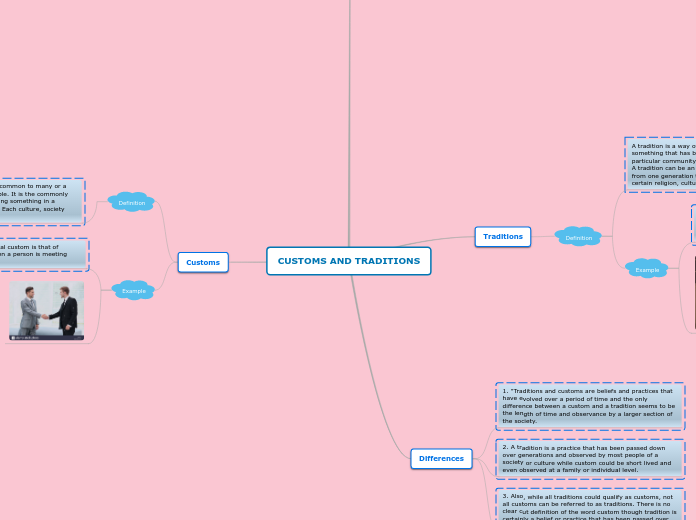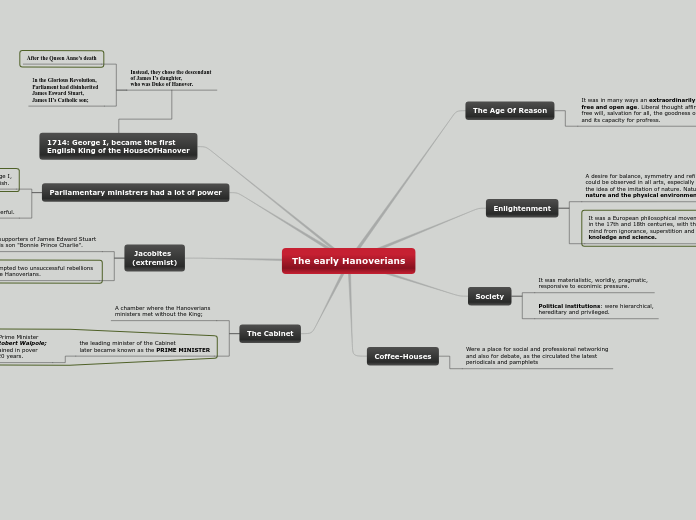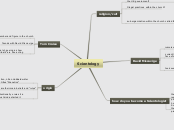CUSTOMS AND TRADITIONS
3. Also, while all traditions could qualify as customs, not all customs can be referred to as traditions. There is no clear cut definition of the word custom though tradition is certainly a belief or practice that has been passed over generations
2. A tradition is a practice that has been passed down over generations and observed by most people of a society or culture while custom could be short lived and even observed at a family or individual level.
1. "Traditions and customs are beliefs and practices that have evolved over a period of time and the only difference between a custom and a tradition seems to be the length of time and observance by a larger section of the society.
Traditions
if we look at the Christmas tradition in the past we noticed that the little trees used to be decorated with foods like apples and nuts; different to how it is done today with lights and figurines.
A tradition is a way of behaving, thinking or doing something that has been followed by people in a particular community, society, family, etc. for a long time. A tradition can be an idea, belief that is passed down from one generation to another. It can be common to a certain religion, culture or even a family.
Differences
Customs
Example
The most common and universal custom is that of shaking hands with people when a person is meeting them for the first time.
Definition
A custom is a usage or practice common to many or a particular place or group of people. It is the commonly accepted way of behaving or doing something in a particular society, place or time. Each culture, society and religion have their customs.









